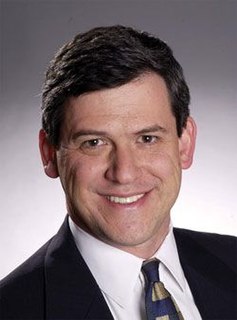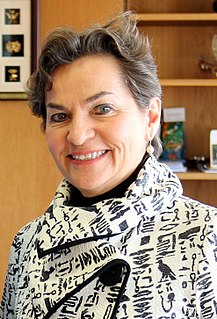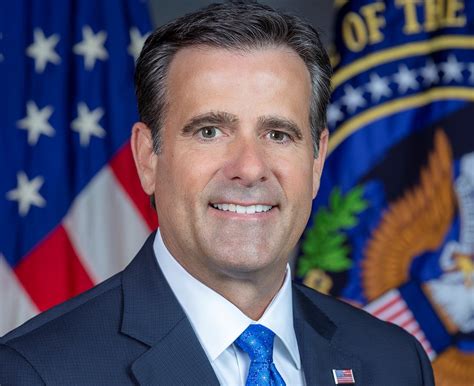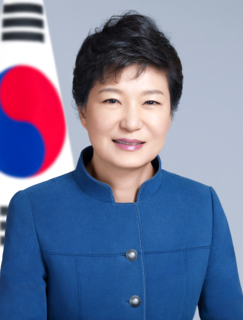A Quote by Donald Trump
I think the place maybe to watch with the greatest worry right at the moment, and to try to help the most, may be those parts of Africa around Somalia that are enduring a climate-caused and really record-breaking drought. It may be the greatest humanitarian crisis since the end of World War II. And of course, where humanitarian crises happen, so do political instability. This is the world that we're building and building fast. And it's the world that people are trying somehow to slow down. Trying very hard to bring down this fossil fuel machine before it does any more damage.
Quote Topics
Africa
Any
Around
Before
Breaking
Bring
Building
Caused
Climate
Course
Crises
Crisis
Damage
Does
Down
Drought
End
Enduring
Fast
Fossil
Fossil Fuel
Fuel
Greatest
Happen
Hard
Help
Humanitarian
Instability
Machine
May
Maybe
Moment
More
Most
Parts
People
Place
Political
Political Instability
Really
Record
Right
Since
Slow
Slow Down
Somalia
Somehow
Think
Those
Try
Trying
Very
War
Watch
World
World War
World War I
World War II
Worry
Related Quotes
What's going on in Syria is the worst humanitarian crisis since World War II. And we are punishing those who are suffering most in this circumstance, in this condition. We vet refugees from Syria for a period of 18 to 24 months before they're allowed to come to the United States. And, you know, if you will permit me, I think we know more about them by the time they get here than we know about the president's finances.
Democracy takes work. That's the thing we're really finding out, that, you know, in many ways, you know, the past two decades we've taken for granted all of the extraordinary achievements of the post-war generation. You know, building this global alliance structure that has kept the peace across the North Atlantic since World War II. Building all of these institutions, building all this remarkable technology. And people have privatized. You know, you can now, you don't have to go outdoors much, the whole world comes to you.
The record-breaking extreme weather events causing chaos across the globe should be a wake-up call. The transition to a low-carbon economy will be much more painful if we wait until there is a climate crisis before recognising that more than half of the world's fossil fuel reserves will have to remain in the ground.
Were I to make the announcement and to run, the reasons I would run is because I have a great belief in this country [America]. ... There's more natural resources than any nation in the world; the greatest education population in the world; the greatest technology of any country in the world; the greatest capacity for innovation in the world; and the greatest political system in the world.
It's important to remember that World War II was experienced very much as a continuity in that sense. Most of World War II in most of Europe wasn't a war; it was an occupation. The war was at the beginning and the end, except in Germany and the Soviet Union, and even there really only at the end. So the rest of time it's an occupation, which in some ways was experienced as an extension of the interwar period. World War II was simply an extreme form, in a whole new key, of the disruption of normal life that began in 1914.
What kind of world does the humanitarian contemplate as affording him full scope? It could only be a world filled with breadlines and hospitals, in which nobody retained the natural power of a human being to help himself or to resist having things done to him. And that is precisely the world that the humanitarian arranges when he gets his way.
The humanitarian wishes to be a prime mover in the lives of others. He cannot admit either the divine or the natural order, by which men have the power to help themselves. The humanitarian puts himself in the place of God.
But he is confronted by two awkward facts; first, that the competent do not need his assistance; and second, that the majority of people positively do not want to be "done good" by the humanitarian. Of course, what the humanitarian actually proposes is that he shall do what he thinks is good for everybody. It is at this point that the humanitarian sets up the guillotine.
Look, look, Jeb [Bush] said we were safe with my brother. We were safe. Well, the World Trade Center just fell down! Now, am I trying to blame him? I'm not blaming anybody. But the World Trade Center came down. So when he said, we were safe, that's not safe. We lost 3,000 people, it was one of the greatest - probably the greatest catastrophe ever in this country if you think about it, right?
The very greatest genius, after all, is not the greatest thing in the world, any more than the greatest city in the world is the country or the sky. It is the concentration of some of its greatest powers, but it is not the greatest diffusion of its might. It is not the habit of its success, the stability of its sereneness.
This year marks 20 years since the Rwandan genocide -- the world's greatest humanitarian tragedy of the late 20th century. The international community had pledged 'never again' in the aftermath of the genocide in the former Yugoslavia and Rwanda in the 1990s. Yet, we are witnessing today a different type of humanitarian disaster unfolding in Syria and Iraq.































